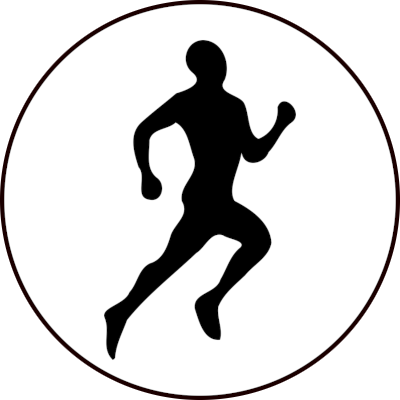Don’t trust a fart after mile 3
Learning to slow down and not do too much too fast. It’s taken me a few injuries and set backs to learn that. I see a lot of new runners online still make the mistake and inevitably they post about injuries a year or so later after they started.
I’m following the New to running (couch potato to 5k in 8 weeks) plan so hopefully I will not get injured
I did the UK variant of Couch to 5K (9 weeks, final goal is 30 minutes at any pace, not 5km) three years ago. I’d never run before in my life.
Instead of chasing pace after finishing that, I worked on increasing duration and distance. That was after realising that every time I’d forced myself to get faster I’d picked up some injury. Pace naturally increased as I got fitter.
I did the same thing earlier this year. Just be aware that after that program don’t up your mileage a fuck ton, your joints won’t be prepared. I went the route of trying to work on upping my 5k speed after the C25k plan and when I’m happy with that I’ll move towards 10k. My end goal years down the line is to run just 1 marathon in my life.
How important stretching is even if you’re younger!
Stretching may be important but also less than you think and not really backed up by science. Just a warm up is good. https://healthcare.utah.edu/healthfeed/2023/01/4-stretching-myths-exposed
How important dynamic stretching is even if you’re younger!
Hardest part of running is not running too fast, even when you can. It’s a recipe for injury. Instead, let your body grow into running, which initially takes a couple of years to grow your tendons and bones, which is not really finished, ever: you can always improve. I only learned to take it easy after 40, only then having the peace of mind of just enjoying running, instead of wanting to be at the next crossing, the next bridge or the next footpath. Just to enjoy the running that you do and reach all the landmarks while just running along. Doing a race once in a while will help to keep the training on a lower intensity, but it will always remain difficult not to run too fast. Injuries will be just around the corner if you’re not careful.
I started running competitively as a school kid, and most of how we ran was not based on science at all. For starters, I never had a coach even approach the topic of running form. There were kids who ran with the most bouncy gait that robs so much energy from you, and coaches never pointed it out. I wasn’t like that, but only cause of luck.
There was also, and this definitely still exists today, almost exclusively training focused on high intensity, 110% effort workouts. Whether it was running 800 m intervals, or a 6 mile run, or a hill workout, the only objective was to do them faster. Anyone who actually looks into any science will tell you that it’s a terrible approach; you need varied intensity to recover and build endurance. There’s not a magical reset each night that let’s you get up and do high intensity workouts day after day; that’s a recipe for feeling like garbage every day. I think the widespread proliferation of smart watches is helping with this though, and I would encourage anyone to get even a really simple/cheap watch that can display heart rate.
Lastly, what I think is a vitally important distinction that no one makes is that increasing athletic performance does not equate to improving health. Many people recognize it in sports like gymnastics or wrestling, where tightly controlling your weight will help you win, but obviously, running laps while wearing a trash bag and not eating for week is bad for you. The same principal applies to running. There are plenty of things runners do to be faster that either don’t have a benefit for overall health, or they are a net negative for health. Look up the “female athlete triad” for a good example.
Another example is flexibility. Many people equate greater flexibility with greater health and greater performance. Evidence has not shown this to be true. There’s certainly circumstances where greater flexibility of a particular joint can improve specific performance capabilities, but it’s not an across-the-board improvement. A range of motion that you might consider “flexible” in one sport, you could call “unstable” in another. You can find studies saying that there are performance and injury prevention benefits to certain stretching regimens for certain sports, but you can find just as many that report no benefits or a negative correlation. Just look at anyone with Ehlers-Danlos syndrome. Meta-analyses on the subject of stretching and flexibility are often inconclusive. Part of the trouble is that analyses are often done looking for a linear relationship between flexibility and injury, when the most likely (in my opinion) truth is that being too inflexible is bad, and being too flexible is bad, while being “average” is probably best for general fitness and injury risk reduction.
In a similar vein, shoes can be designed to make you faster, but that does not mean they are better for you. There’s a lot to say about shoe design, injury risk, and performance, but rather than rant more, I’ll just post a good review article.
Long story short, I think everyone needs to consider why they run. Is it to be the fastest, or is it to just have an enjoyable hobby that keeps you healthy?
https://www.frontiersin.org/articles/10.3389/fspor.2022.815675/full
Just do whatever garmin tells you to do. It sometimes won’t make sense, or you’ll think, oh, that’s stupid, no, but if you just do what it says, you’ll have a better time of it and advance quicke
Unfortunately, I don’t own Garmin or any other smartwatch :(
That it isn’t just “run and you’ll get the best high of your life”. For some part, you have to work towards running being fun and giving you that “runner’s high”. Until that point, it can be difficult to persist through and easy to make you disillusioned.
Four years in and I’m still waiting for the high. Fitter, stronger, healthier (both mentally and physically) but often it’s still more of a grind than something I enjoy. At least it’s a habit now.
I felt that way at 4 years. I’m at 7 now and it no longer feels like a grind. The major difference for me is that I started following detailed training plans 2 years ago.
Nutrition. It’s so much more fun if you do it properly
My feet change. Shoes that work in one season might not work later. And since shoe companies constantly change designs, there’s no point getting attached to any one brand or model. Keep experimenting, but slowly.
Also don’t try to run through pain. Take a break. Use heat. Talk to a physical therapist. Whatever. Just don’t assume it’ll go away without me addressing it.
deleted by creator
That as much as I love zero drop shoes with thin souls, they’re not the right choice for me
Not to run on concrete. I have completely ruined my knees.
On the other hand I love running on concrete, even barefoot!
I’m really jealous. It’s all broken glass and misery round near me!
So you only run trail now? Wouldn’t some road running shoes with cusioning help?
Contrary to popular belief, more cushioning from shoes leads to higher loading in the knees
I didnt know that! How is that so?
It’s likely a culmination of a few different factors. It seems like with softer shoes , you hit the ground harder. A bunch of studies have shown that same effect. One group even did it with load cells implanted directly in people’s knees and showed that the knee force is higher. Depending the shoe, some are even designed the change your running form, and that could increase your knee loads, too. Lots of shoes out there these days that make it feel like you’re wearing sketchers shape-ups.
I have really chunky running shoes that do help but it just isn’t worth the pain. I can pretty much only run on grass or treadmills now so I prefer to do a lot of walking/hiking instead. I am approaching 40 as well so have to be a bit more careful in general too.
I’m in my mid fifties. I run mostly in Vibram FiveFingers and occasionally (like today) barefoot. I’m just weird that way.
Me and my flat feet are jealous.
Anyone can run barefoot (except maybe if you are diabetic, as you has less feeling on the feet in this case). But be very careful, train your form, and don’t do TMTS, that’s like being a beginner again.
Good quality asphalt or concrete are perfect surface. I’m personally fond of the very smooth asphalt of the sidewalk in my neighborhood.
A pair of handmade huaraches or cheap minimalist shoes can be a good complement.
Doing a C25K, and seeing https://www.youtube.com/watch?v=zSIDRHUWlVo every month is a good plan. You can cross train (like bike) while transitioning. It will take 3 to 12 months to be back to your actual level.
I wish I’d started running sooner in life for sure. I think it’s important to understand that slow and steady progress is more productive that getting into an injury cycle. That balance, being core strong and doing things other than just running helps.
Most of all, enjoy the spot in running that you are at. If you are just starting note how you are progressing, each milestone and pr is great. I’ve now been running for about 10 years, and have come a long way and only regret not starting sooner.
The #1 block for me running was really that it was a track centric activity. I hate running around ovals to my very core. I needed to learn that you can run around trails and anywhere that wasn’t track, playground, sportsfield nonsense.
deleted by creator






